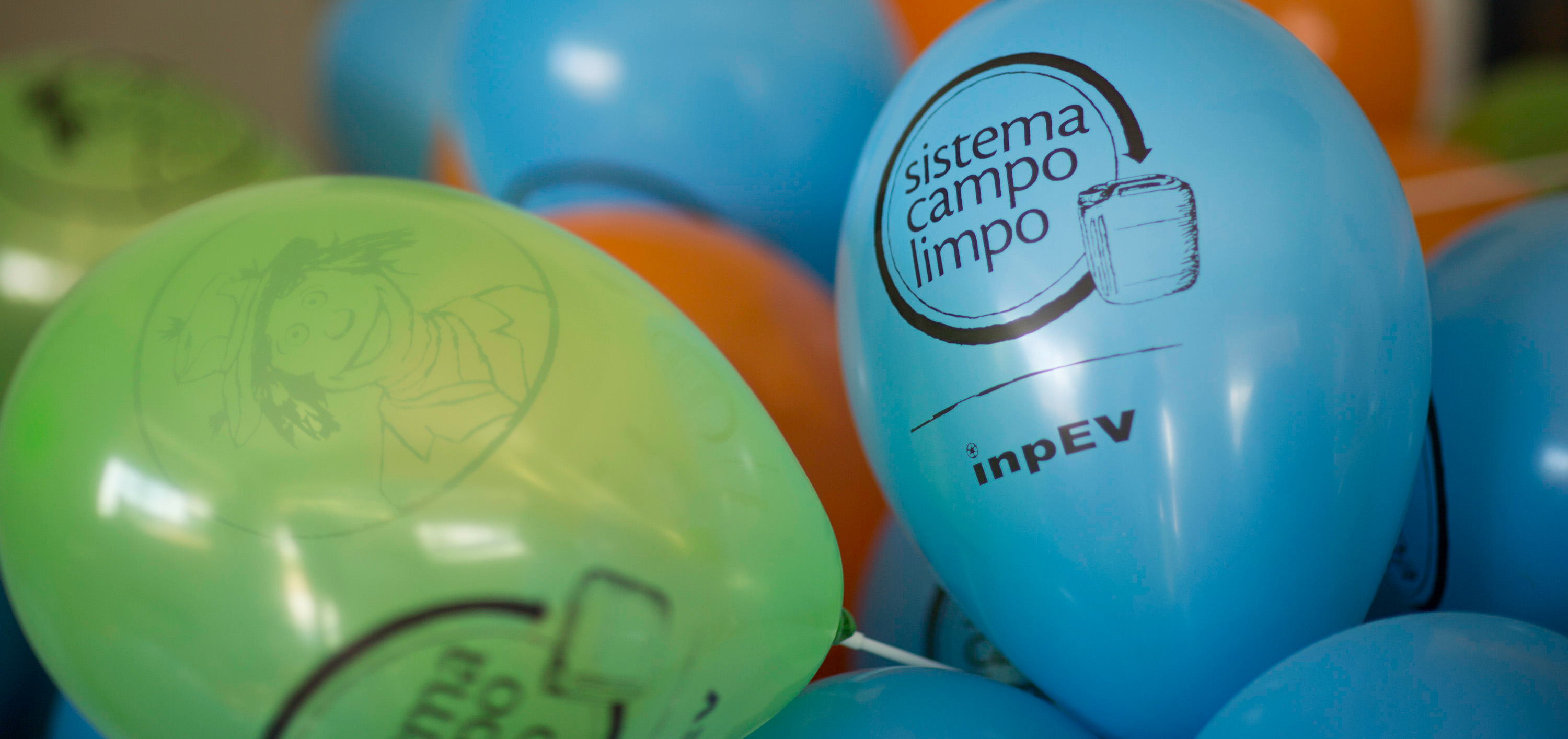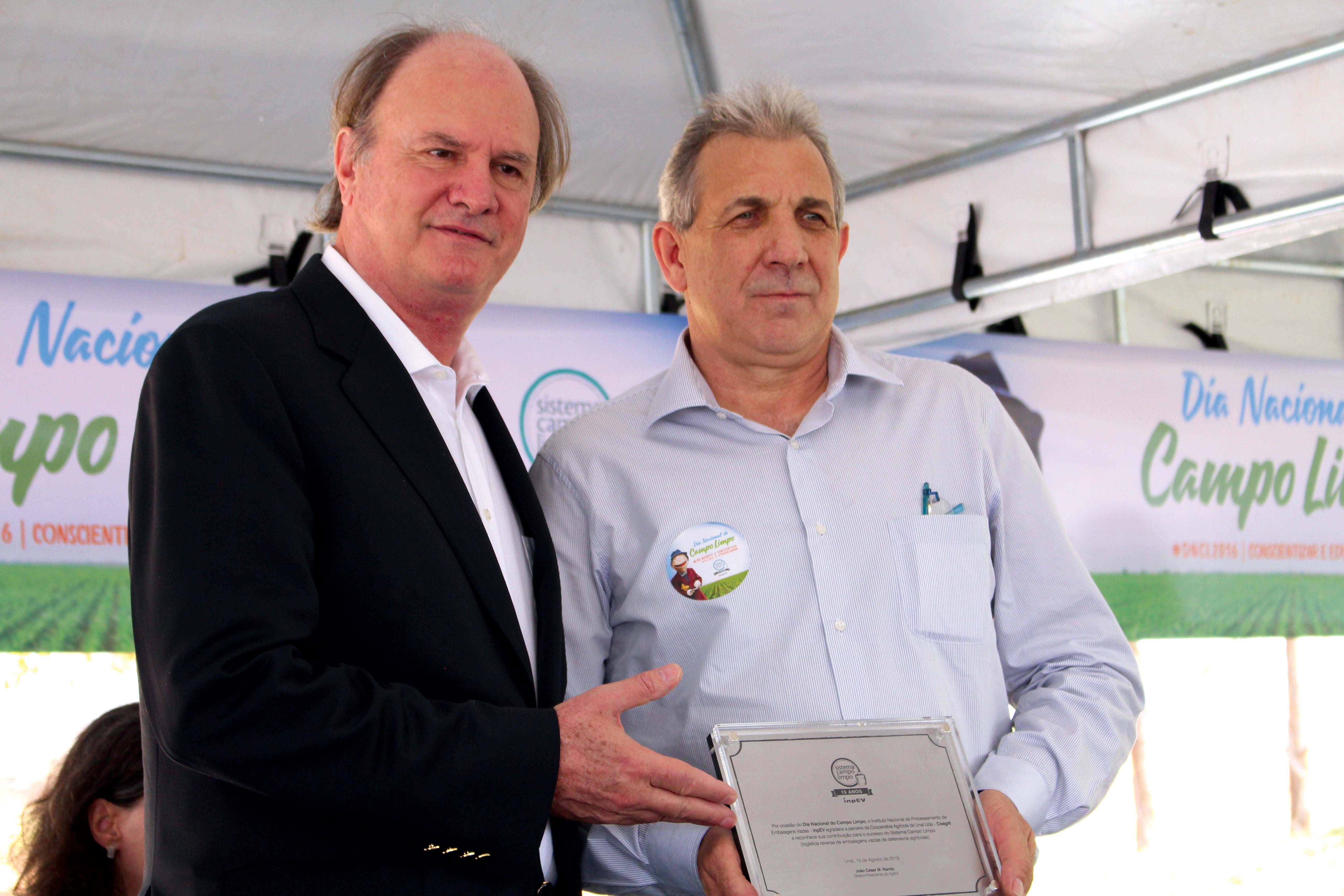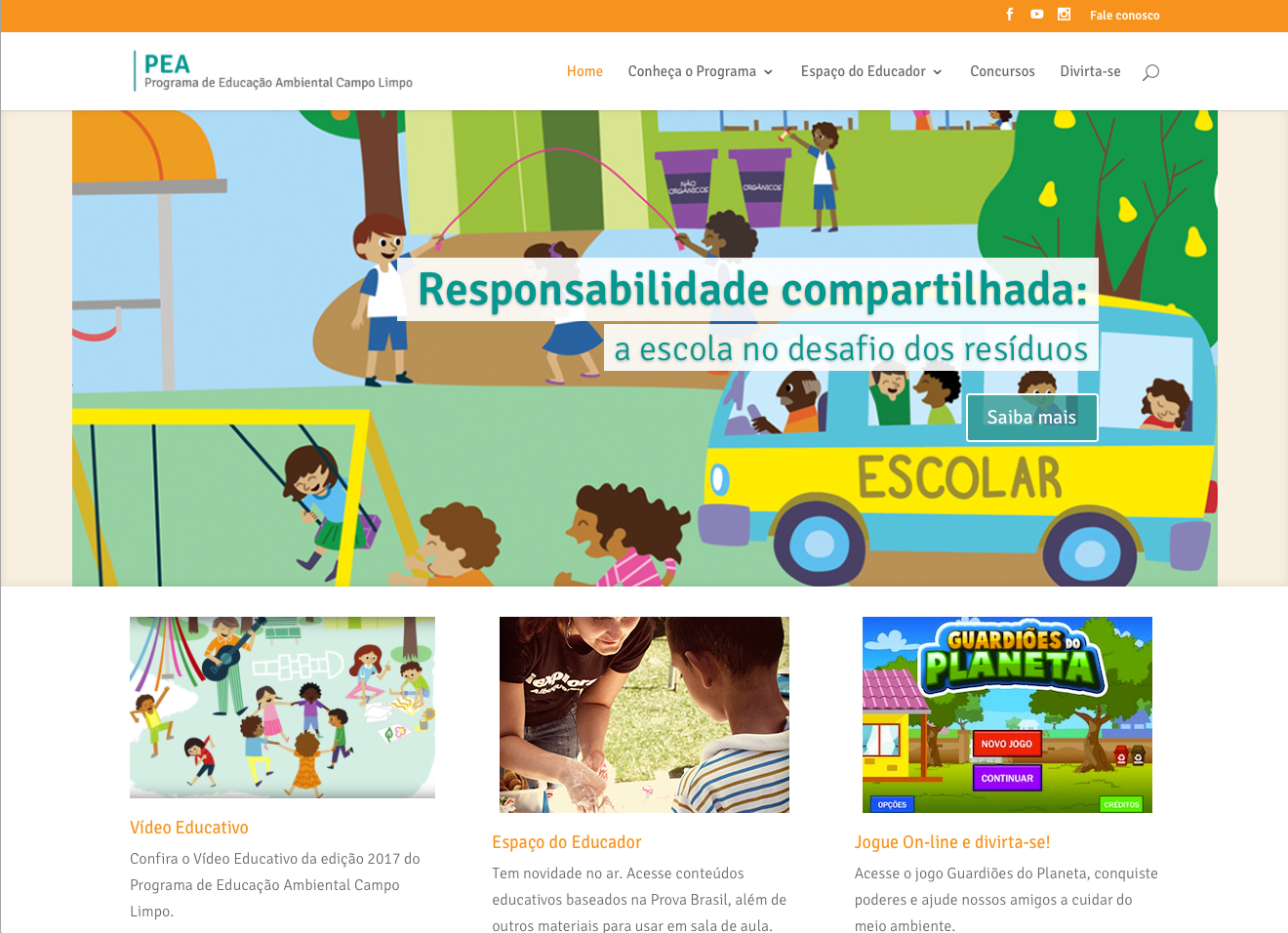
August 18, the National Clean Field Day, is part of the national calendar since 2008
Education and awareness
inpEV's continuous investment to conserve the environment and development future generations
GRI G4-SO1
By focusing on engaging all SCL links and recognizing the importance of educating future generations on sustainability, inpEV continuously invests in environmental educational activities.
These consist of campaigns, educational materials, videos, and a virtual course, all of which guide all links in the agricultural chain and in particular farmers about the need to properly wash the packaging (in a process called triple washing) and a step-by-step description thereof so that they can return the packaging for the material to be adequate for recycling. But the institute also goes beyond, disseminating messages about environmental conservation, conscious consumption, waste management, among other topics for students, educators, and society in general. Since 2005, the National Clean Field Day takes advantage of the capillarity of the System with its network of receiving units to promote educational actions and strengthen its ties with the surrounding community. In another initiative launched in 2010, the Clean Field Environmental Educational Program offers teaching materials specially designed to guide children in the 4th and 5th grades of Elementary Education in the several states of the country. Together, these two initiatives accounted for more than 280,000 people in 2016.
Completely redesigned in 2015, inpEV's online platform is more dynamic and interactive. The e-learning course on packaging reverse logistics has a three hour syllabus and provides information on legislation, shared responsibilities, and the final disposal of packaging received at the SCL. The virtual course has easy to understand language and is accessible to all interested parties on the inpEV website (inpev.org.br). Upon conclusion, it is possible to print a certificate.
National Clean Field Day
As part of the national calendar, the National Clean Field Day is celebrated on August 18, a date that celebrates the excellent results of the System among all the links of the agricultural chain, in a movement that also draws attention to the importance of conserving the environment. The actions carried out since then have already gathered more than 1 million people and are organized by the empty packaging receiving stations with the support of inpEV, distribution channels, and public and private organizations.
In 2016, the DNCL counted with more than 70,000 people involved in its activities. The receiving units had a greater involvement when compared to the previous year, with the participation of 111 receiving stations.
The DNCL is a moment in which the System units open their doors to the surrounding community and organize several activities for farmers, public authorities and educational institutions in the region. At this time, the local community can learn about how important the work of SCL is for conserving the environment amidst a celebration that includes lectures, exhibitions, musical and theater presentations, and activities to engage all of society.
One of the activities held during the celebrations is the initiative that rewards school projects related to environmental conservation chosen by popular vote. In 2016, the three best projects came from schools in the cities of Tangará (SC), Luziânia (GO), and Formosa do Oeste (PR). In all, 119 schools registered actions coming from 18 states. More than 43,000 votes were accounted for, above the 30,200 in 2015.
The continuous investments in awareness and education since the foundation of inpEV substantiate its commitment toward preserving the environment and developing future generations.
Maria Helena Zucchi Calado, inpEV Sustainability manager since 2012

João Cesar Rando, inpEV CEO, handing a recognition plaque to José Carlos Ferrigolo, president of the Agricultural Cooperative of Unaí (Coagril), Minas Gerais
Environmental Educational Program
Created by inpEV in partnership with the receiving stations, the Clean Field Environmental Educational Program (PEA) supports educational institutions in complementing their syllabuses with themes related to the environment. Relying on specifically developed teaching materials, the program operates in schools surrounding the receiving stations by fostering environmental awareness in 4th and 5th grade Elementary School students.
All activities are in line with the recommendations of the National Curriculum Parameters (PCNs - Parâmetros Curriculares Nacionais) of MEC - Ministry of Education and Culture. The number of participants in these activities has grown in 2016, surpassing 2,000 schools and 210,000 students. One hundred central stations registered schools from 274 different cities to participate in the PEA activities.
Another novelty of 2016, the material presented the digital game Guardians of the Planet, using electronic platforms to approach the school environment and language most common to children and youth.
| Environmental Educational Program | 2014 | 2015 | 2016 |
|---|---|---|---|
| Cities involved | 245 | 274 | 274 |
| Central Stations | 103 | 102 | 100 |
| Schools | 1.572 | 1.872 | 2.060 |
| Classrooms | 6.223 | 7.289 | 8.360 |
| Involved students | 156.946 | 189.060 | 210.428 |

The Environmental Educational Program (PEA) portal contains multimedia material with online videos and games
Learn more
about PEA at inpev.org.br/peacampolimpo
Indirect impacts on society
inpEV contributes to society mainly by improving environmental conditions by means of receiving and providing final disposal of post-consumption crop protection packaging carried out by the Campo Limpo System. It focuses on economic development by generating around 1,500 direct jobs in the Campo Limpo System, besides the 73 jobs of the institute itself. inpEV also disseminates knowledge and contributes to improve other reverse logistics systems when sharing SCL information with other productive sectors. GRI G4-EC8
210,000
students participated in the Environmental Educational Program in 2016, in 274 cities throughout the country
Institutional partnership
At the end of 2016, inpEV signed a partnership with Enactus, a non-profit organization present in 36 countries, that congregates over 70,500 university students and their teachers. The goal of this partnership is to enable the development of social-environmental projects by these students thereby bringing new innovations and benefits to the Campo Limpo System.